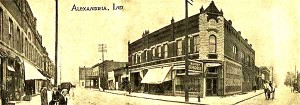Summer Waning Strawberry Moon
I’ve not written much about permaculture for a while. Here’s a one-pager* from our landscapers, Ecological Gardens. It defines a new term for me: natural capital. I’ve since discovered that this is a term with a larger history which I haven’t explored fully, but I like the Ecological Gardens version.
Just imagine the kind of revolution we’d have if each person with land–in the whole world or in a whole city or in a whole county like Anoka County–committed themselves to increasing the natural capital of their land. It’s a little bit like that old boy scout motto: Leave your campsite better than you found it.
We could, each one of us, take multiple unique tacks on the notion of natural capital. Some of us might focus on small commercial crops, others might raise chickens for meat and eggs, still others might band together as neighborhoods and grow crops in tandem, some folks doing one thing, others another and producing a local horticultural economy.
A federal or state program that made low cost loans or outright grants for the establishment of permaculture at the local level makes a lot of sense to me. Like the 160 acres and a mule of yesteryear. We need a horticulture and an agriculture that increases the carrying capacity of the earth, helps clean up the rivers, streams and lakes.
*Would you like to:
• Maintain beautiful self-sustaining gardens organically?
• Pick fresh, nutrient-dense foods from your own backyard?
• Create habitat for the nature you love?
• Build resiliency into your landscape to help fight climate change?
These are all products of natural capital. Our first priority at Ecological Gardens is to help you increase the natural capital of your land. This means assessing the unique combination of resources – sunlight, wind, water, and microclimates – and turning them into productive investments that will yield benefits today and for many years to come.
Soil is the foundation for natural capital in our northern temperate climate. Healthy soil creates a condition for healthy plants, produces nutrient-dense foods for humans and wildlife, reduces water use, and minimizes leaching and runoff. Building healthy soil usually requires an investment since most soils are compacted and chemically treated.
Plants are the primary producers of value on the land. They take up sunlight, water, and nutrients turning them into nutritious foods, medicines, fibers, fuels, oils, and wood. Increasing productivity on your land requires an initial investment since plants of low productivity tend to dominate the landscape.
Your return on investment will vary depending on the size of your land and the configuration of resources but will increase exponentially as plant diversity and abundance grows.
Short-term returns (1-5 years)
• Lower water bills (up to 30%) for yard and garden care
• Lower maintenance costs for fertilizers and lawn care products
• Lower food bills as you begin to harvest food, flowers and medicines
• Greater wildlife value (bees, birds, and beneficial insects)
• Greater beauty
Intermediate returns (5-15 years)
• Lower energy costs for air conditioning and heating by strategically locating trees and vines
• Lower labor requirements as natural processes begin to work for you
• Increased property values due to abundance and beauty
• Increased food security as you provide more of your own food
Long-term returns (15 + years)
• Lower fuel costs as you begin to harvest your own wood [for larger properties]
• Increased productivity as your land matures

